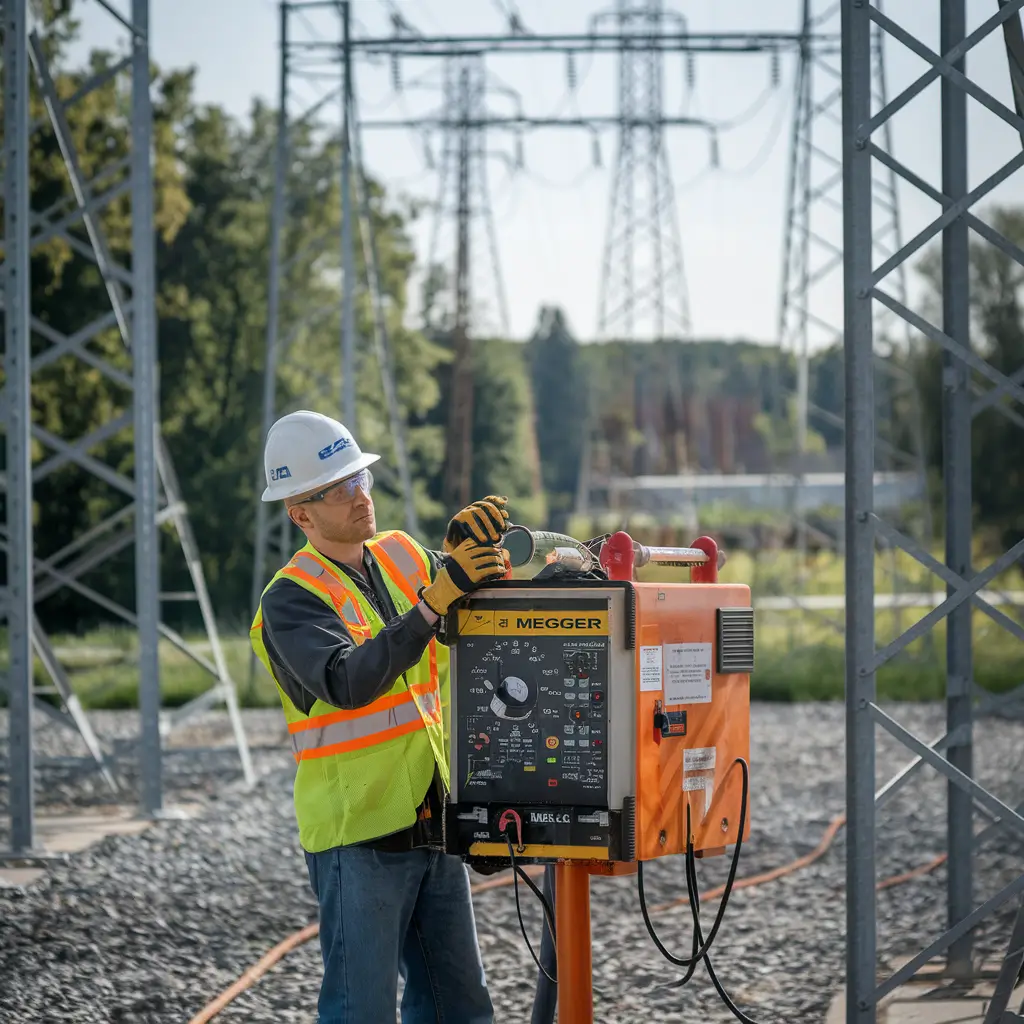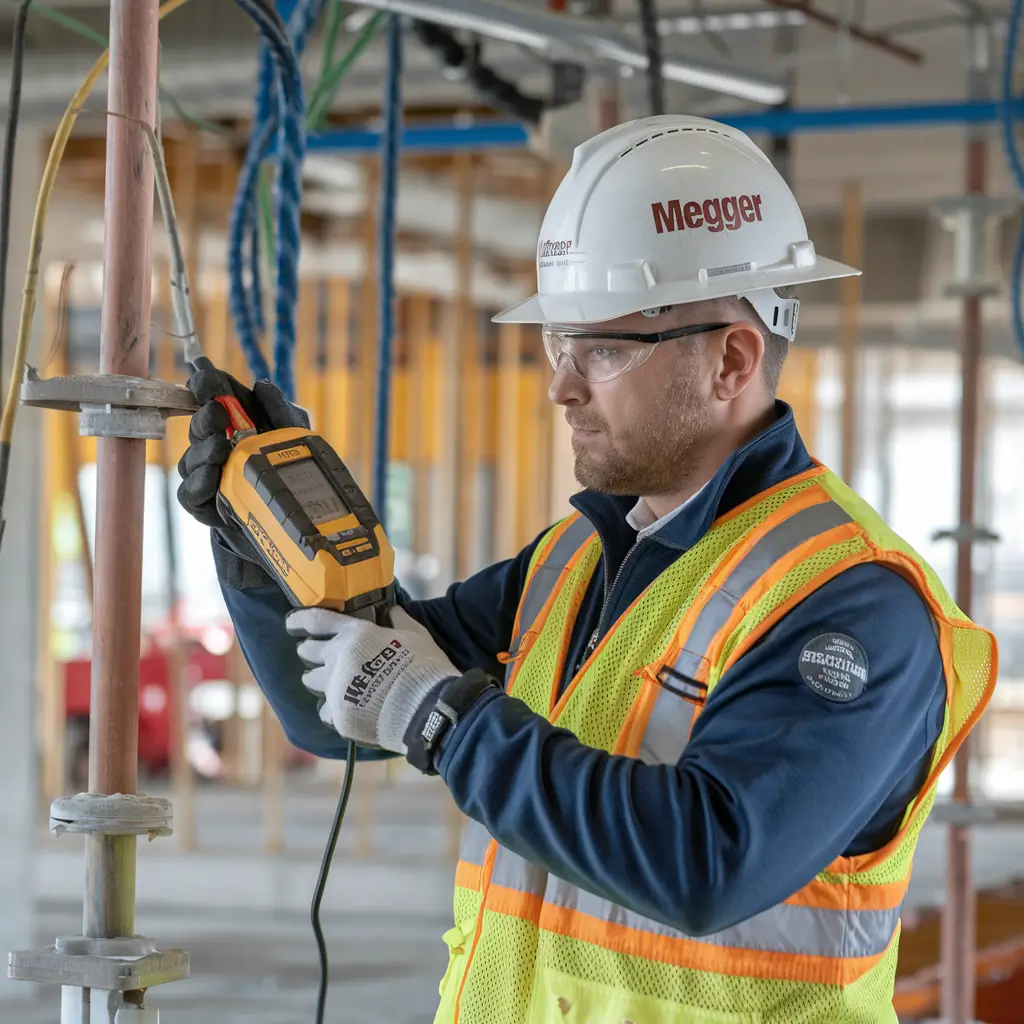Welcome to Be Safe Blog! The Insulation Resistance Test (Megger Test) ensures electrical safety, integrity, and compliance by detecting insulation issues.
At Be Safe Blog, we are proud to be supported by Velosy Safety Consultancy. If you’re looking for Insulation Resistance Tests (Megger Tests) and certification, third-party inspections or safety training, visit www.velosysafety.com.
What is an Insulation Resistance Test (Megger Test)?
The Insulation Resistance Test, commonly known as the Megger Test, analyzes the condition of electrical insulation in SMDBs, DBs, wires, cables, motors, transformers, and other electrical equipment.
This test measures how well the insulation resists current flow. Electrical insulation degrades over time due to environmental factors, mechanical wear, and electrical stress. Performing regular Megger Tests identifies early hazards, detects issues, and prevents equipment failures.

Why Conduct an Insulation Resistance Test?
Electrical insulation plays a critical role in preventing current leakage, which could lead to short circuits, or even fire hazards. The main reasons to perform an Insulation Resistance Test include:
Compliance: Ensure Compliance to local regulations, industry and safety standards.
Safety Assurance: Protect personnel and property from electrical hazards.
Early Fault Detection: Identify faulty points or possible failures before they increase.
Equipment Longevity: Enhance the life of electrical systems by keeping good insulation.
How Does a Megger Test Work?
A Megger is a dedicated instrument designed to generate a high voltage and measure the resulting leakage current in the insulation. The resistance value is then calculated and displayed in megaohms (Ω).
Step-by-Step Process
Preparation:
- Turn off power to the equipment being tested.
- Discharge any stored energy to avoid damage or injury.
- Clean the test points to ensure exact results.
Connection:
- Connect the test leads to the Megger device.
- Attach one lead to the insulation and the other to the conductive part.
Testing:
- Select the appropriate test voltage based on the equipment rating.
- Press the test button to apply the voltage.
- Observe the resistance value displayed on the Megger.
Interpretation:
- High resistance values (typically in the megohm range) indicate good insulation.
- Low resistance values suggest degraded or faulty insulation.
Documentation:
- Record the results for maintenance logs and compliance purposes.

Best Practices for Accurate Megger Tests
- Choose the Right Test Voltage: Using a voltage that’s too low may show wrong results, while excessive voltage can damage insulation.
- Environmental Considerations: Perform tests under stable conditions. High humidity can change results.
- Regular Testing: Schedule periodic Megger Tests, annually to monitor insulation health over time.
- Competent Inspector: Ensure tests are conducted by qualified personnel from a third party inspection company like Velosy Safety Consultancy to avoid errors and equipment damage.
Common Applications of Megger Tests
- Industrial Facilities: Routine checks on motors, switchgear, and control panels.
- Construction Sites: Pre-commissioning tests for new electrical installations.
- Utilities: Testing transformers, substations, and distribution systems.
- Marine and Offshore: Ensuring the integrity of electrical systems in severe environments.
Factors Affecting Insulation Resistance
Several factors affect the results of an Insulation Resistance Test, including:
- Temperature: Higher temperatures reduce insulation resistance.
- Humidity: Moisture content can lower insulation resistance.
- Age of Equipment: Older systems frequently show lower resistance due to wear and tear.
- Contamination: Dirt, oil, and chemical contact lower insulation quality.
Understanding Megger Test Results
- High Resistance (>100 MΩ): Excellent insulation condition.
- Moderate Resistance (1 MΩ to 100 MΩ): Acceptable but should be monitored.
- Low Resistance (<1 MΩ): Poor insulation requiring immediate action.
How Velosy Safety Consultancy Can Help
At Velosy Safety Consultancy, we offer Insulation Resistance Tests (Megger Tests) along with certification, third-party inspections and safety training in UAE. Our experts ensure accurate testing and compliance with safety standards. Visit www.velosysafety.com for more information.

Conclusion
The Insulation Resistance Test (Megger Test) is a vital tool for maintaining the safety, reliability, and efficiency of electrical systems. By understanding the importance of this test and conducting it regularly, you can prevent equipment failures, ensure compliance, and protect both people and property.
Stay safe and informed with Be Safe Blog, your trusted partner in safety. Don’t forget — for professional assistance, certification, and training in Dubai, UAE, reach out to Velosy Safety Consultancy at www.velosysafety.com.






